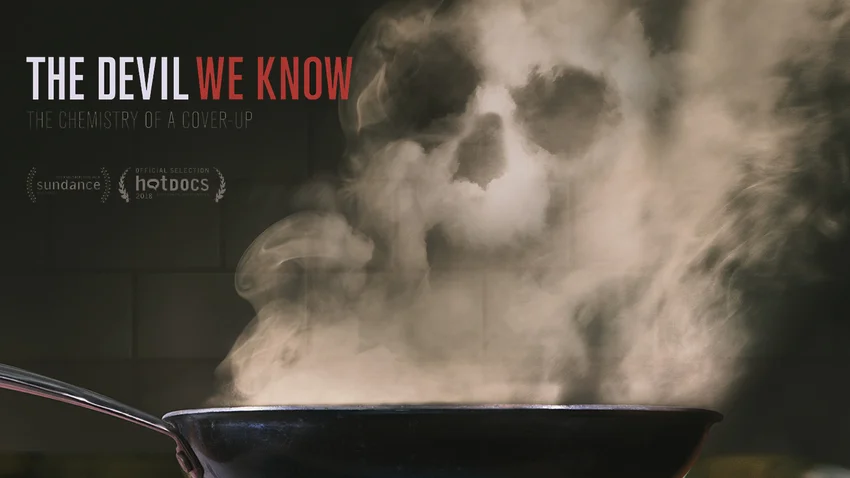When The Devil We Know, the gripping 2018 documentary exposing the hidden dangers of Teflon and corporate deception, quietly disappeared from Netflix, many viewers were left frustrated and searching.
The film, which had found a wide audience thanks to Netflix’s global platform, has become a touchstone for environmental documentaries and corporate accountability storytelling. Its departure from the streaming giant has raised two big questions: Why was it removed, and where can you watch it now?
What Is The Devil We Know About?
Before diving into streaming availability, it’s important to revisit why this documentary made such an impact.
Directed by Stephanie Soechtig, The Devil We Know tells the disturbing true story of how chemicals used in the production of Teflon—especially perfluorooctanoic acid (PFOA), also known as C8—contaminated water supplies near a DuPont manufacturing plant in Parkersburg, West Virginia.
Through interviews with scientists, environmental activists, and whistleblowers, the film exposes how long the dangers of these chemicals were known—and how long they were ignored. It serves not only as a detailed case study of corporate negligence, but also as a broader warning about industrial pollution and regulatory failure.
The film’s impact goes beyond entertainment. It sparked further public discussion about PFOA and related compounds, many of which are now banned or restricted globally. It also laid the groundwork for dramatizations like the 2019 feature film Dark Waters starring Mark Ruffalo.
Why Was The Devil We Know Removed from Netflix?
Streaming licenses are often misunderstood. Unlike movies that are purchased for permanent access, most streaming content on platforms like Netflix is licensed for a limited period—often one to two years.
The Devil We Know was first added to Netflix in mid-2019, shortly after its initial release and early success on the festival circuit. It quickly found an audience due to its topical relevance and gripping narrative. But by mid-2023, the licensing agreement had expired.
Netflix did not produce or own distribution rights to the film, so once the agreement with the rights holders ended—and if the platform chose not to renew—it had to be removed. This is common practice for documentaries and independent films that don’t fall under a specific studio umbrella.
There was no official statement from Netflix or the filmmakers, but it appears that the removal was a standard contract expiration, not the result of controversy or content issues.
Where Can You Watch The Devil We Know Now?
If you missed The Devil We Know on Netflix—or want to rewatch it—there are still several platforms where it’s currently available:
1. Amazon Prime Video (Rent or Buy)
The documentary is available for digital rental or purchase on Amazon Prime Video. Rental prices typically range from $2.99 to $3.99, while purchasing it permanently costs around $9.99.This version is HD and accessible across most countries where Amazon offers video services.
2. Apple TV / iTunes
Similar to Amazon, The Devil We Know is available for rent or purchase through Apple TV. Pricing is comparable, and the quality is high. This is a good option for Apple ecosystem users who want to add it to their digital library.
3. Vudu
For U.S.-based viewers, Vudu is another platform offering the film. It’s a straightforward pay-per-view model, and no subscription is required. This is a reliable alternative for those who don’t use Prime or Apple.
4. YouTube Movies
You can also rent or buy the documentary directly through YouTube Movies. This option is especially convenient for international viewers, as YouTube often supports access in regions where other platforms are restricted.
5. Kanopy (Library Access)
If you have a library card and your library system supports Kanopy, you may be able to stream The Devil We Know for free. Kanopy licenses a wide range of documentaries, especially those with educational value, and this film fits perfectly within their catalog.
Why the Film Is Still Worth Watching
Even several years after its release, The Devil We Know remains incredibly relevant. The documentary addresses not just one specific chemical or company, but the broader issue of how industrial pollutants can enter our environment—and bodies—without clear oversight or accountability.
In the time since its release, new research has expanded on the health risks associated with PFAS (per- and polyfluoroalkyl substances), a family of chemicals that includes PFOA. These substances have been linked to liver damage, immune dysfunction, certain cancers, and developmental issues in children.
Governments worldwide are only now beginning to regulate PFAS with greater urgency. For viewers unfamiliar with the issue or for those seeking a starting point for understanding environmental toxins, The Devil We Know is a must-watch.
How It Compares to Similar Documentaries
If you’re interested in exploring similar content while you’re at it, you might consider watching:
- Dark Waters (2019) – A dramatized adaptation of the same case with a Hollywood cast
- Erin Brockovich (2000) – A classic legal drama involving corporate water contamination
- The Bleeding Edge (2018) – Another eye-opening documentary about medical device safety, also directed by Stephanie Soechtig
- What the Health (2017) – Examines the role of government and corporate influence in health-related industries
These films tackle overlapping themes of public health, regulatory failure, and the human cost of corporate irresponsibility. Together, they paint a wider picture of how systemic problems affect real lives.
Final Word: Don’t Let It Disappear From Your Radar
Streaming removals can be frustrating, especially when a film with such educational and emotional power disappears without warning. But The Devil We Know hasn’t vanished—it’s simply moved.
As viewers, we’re often at the mercy of licensing deals and platform decisions. But by seeking out films like this beyond the major platforms, we send a message that such stories matter and deserve visibility. Whether you rent it, stream it through a library, or recommend it to others, keeping The Devil We Know in circulation helps keep its message alive.
